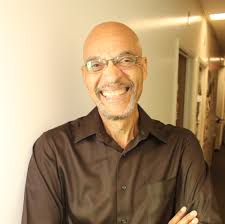Posted on March 25, 2009
The killing of four police officers in Oakland shows the desperation of an ex-felon. Lovelle Mixon was trying to avoid going back to jail and at the same time unable to find any employment that would give him a second chance. It's a story repeated all over America, even if it does not always end in a killing spree as it did in Oakland.
A general consensus is that it was a deadly mix of panic, rage, and frustration that caused Lovelle Mixon to snap. His shocking murderous rampage left four Oakland police officers dead and a city and police agencies searching its soul about what went so terribly wrong. Though Mixon's killing spree is a horrible aberration, his plight as an
unemployed ex-felon isn't. There are tens of thousands like him on America's streets.
In 2007, the National Institute of Justice found that 60 percent of ex-felon offenders remain unemployed a year after their release. Other studies have shown that upwards of 30 percent of felon releases live in homeless shelters because of their inability to find housing. And those are the lucky ones. Many camp out on the streets.
A significant number of them suffer from drug, alcohol and mental health challenges, and lack education or any marketable skills. More than 70 percent of all U.S. prisoners are literate at only the two lowest grade levels. Nearly 60 percent of violent felons are repeat offenders. They are a menace to themselves and, as the nation saw with Mixon, to others. In some cases, they can be set off by any real or perceived slight, insult, or simply lash out from bitter rage. Mixon was one and he made four Oakland police officers victims and left a terrible trail of grieving and distraught families and a shell-shocked city and police department.
The answer to the Mixons isn't easy and simple. The need is to strike a fine and delicate balance between public safety and ex-felon rehabilitation. A big obstacle to making ex-felons law abiding, productive citizens is the continuing inability of many ex-felons to find jobs. City officials in Los Angeles, San Francisco, Washington, D.C., Chicago, New York, and Atlanta have been repeatedly challenged to take action to end employer discrimination against ex-felons. The demand has been to restrict what employers can and can't ask on job applications.
In a revealing study in 2003 and duplicated again several years later, Northwestern University Professor Devah Pager hired groups of African American and white young men with identical resumes and experience to pose as job applicants. Some were told to say they had a drug felony. The study found that when they checked the felony conviction box on applications, it reduced the white applicants' chance of an interview by 50 percent. For black applicants, their chance of landing the job was reduced by two-thirds.
To counter employer discrimination against ex-felons, nearly a dozen states, counties and cities have enacted laws in recent years to sharply limit what employers can ask applicants about criminal records. But that reform effort has stirred fierce resistance from employer groups. Washington, D.C. is a near textbook example of that.
Nearly 3,000 former prisoners are released and return to the district each year. Most fit the standard ex-felon profile. They are poor, with limited education and job skills, and come from broken or dysfunctional homes. Researchers again found that the single biggest factor that pushed them back to the streets, crime, violence and, inevitably, repeat incarceration was their failure to find work.
In 2007, the District of Columbia city council passed a measure that would have banned discrimination in employment as well as housing and education against ex-felons. It was vetoed by then Mayor Anthony A. Williams. The heat on Williams came from business groups that claimed that they'd be sued by rejected applicants.
Similar legislation has been kicked around in Congress since 2005. It hasn't fared much better. The bill called the Second Chance Act is a relatively mild measure to pump about $100 million to local and state agencies for education, job and skills training, counseling, and family unification programs to stem the high rate of recidivism among
ex-felons.
President Obama has often spoken of the need to unhinge the revolving door of felon release and re-incarceration. He backs the Second Chance legislation. But with the economy and the financial crisis dominating the White House and Congressional agendas, the likelihood that ex-felon aid will get immediate attention is slim.
In the meantime, the ranks of the felon underclass will continue to balloon. At last count, there were an estimated 12 million people in the United States with felony convictions. That's nearly 10 percent of the working-age population. And with jails bulging and states desperately trying to figure out how to cut jail costs and increasingly resorting to early release, more ex-felons will be on the streets. The current estimate is that more than 600,000 offenders are now being released from prisons yearly.
Mixon, unfortunately, was one of them. And others like him are ticking time bombs that endanger themselves and others. Oakland tragically showed that.
Earl Ofari Hutchinson is an author and political analyst. His forthcoming book is The Ethnic Presidency: How Race Decides the Race to the White House (Middle Passage Press, February 2008). His weekly radio show, "The Hutchinson Report"- can be heard in Los Angeles on KTYM 1460 AM and nationally on blogtalkradio.com.
© 2009 New America Media All rights reserved.
View this story online at: http://www.alternet.org/story/133269/





